Stax Number Ones
“I’ll Take You There” by The Staple Singers
“I’ll Take You There” and “If You’re Ready (Come Go With Me)” stand among the most powerful number one singles to emerge from Stax Records. Each drew its strength from a steady, unshakable groove, sparse but purposeful production, and lyrics that read like scripture set to song. Together, they transformed plainspoken phrases into mantras, lifted by the Staple Singers’ call and response, and carried onto the charts as national anthems of hope and determination. “I’ll Take You There” reached the top of both the pop and R&B charts in 1972, and “If You’re Ready” followed a year later, topping the R&B chart and breaking into the pop Top Ten.
At the center of both records Mavis Staples commands her duty as lead vocalist. In the endeavor, she is supported by the harmonies of her sisters Cleotha and Yvonne, and the guitar foundation of their father, Pops Staples. This lineup defined the group’s Stax era, refining their gospel roots into messages that resonated on dance floors and radio dials across the country.
The Staple Singers were no strangers to lifting up their audience by the time they arrived at Stax in 1968. Formed in Chicago after Pops had migrated north from Mississippi, the family first made its name in gospel with a spare and direct sound, often little more than Pops’ tremolo-soaked guitar and the tight blend of his children’s voices. Under the tutelage of the Stax label, The Staple Singers quickly transformed into esteemed storytellers through song, carrying the spirit of the church into the grooves of Memphis and Muscle Shoals. For a label searching for its next identity after the loss of Otis Redding and the split from Atlantic Records, the Staple Singers became voices that could bridge the sacred and the secular in the same breath.
The turning point came with “I’ll Take You There,” recorded in 1972 at Muscle Shoals for the album Be Altitude: Respect Yourself. Al Bell, the former promotions man who recruited the Staples family to the label, had risen the ranks to co-owner of Stax, carrying both the weight of the company’s survival and his own private grief. Four years earlier, his younger brother Louis had been murdered in Little Rock. Bell later recalled sitting outside his father’s home after the funeral when a bass line came to him, paired with the words, “I know a place, ain’t nobody crying, ain’t nobody worried …” Out of tragedy came revelation, a vision reshaped into hope.
When Bell carried that idea into the studio, the Muscle Shoals Rhythm Section set it to a hypnotic groove. The first take stretched close to half an hour, with the band vamping while Mavis improvised spoken refrains in a similar fashion to a preacher in a pulpit. The single distilled that jam into something elemental: spare words, steady rhythm, and a voice that sounded equal parts comfort and command. “I’ll Take You There” soared to number one on both the R&B and pop charts, proof that the deepest sorrow could be transformed into joy on wax. For the Staples, it became their defining hit.
A year later, the group returned with “If You’re Ready (Come Go With Me),” the lead single from Be What You Are. Written by Homer Banks, Raymond Jackson, and Carl Hampton, three of Stax’s most trusted songwriters, the track carried forward the formula: unhurried tempo, uncluttered production, and lyrics that landed with the weight of testimony. But where “I’ll Take You There” envisioned peace, “If You’re Ready” declared the terms of that vision: “No hatred will be tolerated … no economical exploitation … no political domination.”
Even within the group, there was hesitation. Mavis worried the song was too close to their last hit. Pops dismissed the doubt. What mattered was the conviction behind the words. Once Mavis stepped to the microphone, her performance turned the lyric into a chant, each repetition tightening its grip.
The single held the top of the R&B chart for three weeks and cracked the Top Ten on the pop side. Its triumph, however, was bittersweet. Shortly after the single’s release, Raymond Jackson died suddenly in a tragic accident, cutting short the career of one of Stax’s most vital young songwriters. For Jackson, who along with Banks and Hampton, who had already delivered Johnnie Taylor’s “Who’s Making Love,” the record stood as a final crowning achievement. For the Staples, it proved that lightning could strike twice when the rhythm was steady and the truth inside the lyric rang clear.
Together, the two records show the reach of the Staple Singers’ Stax era. “I’ll Take You There” expands like a vision, its groove endless and trance-like. “If You’re Ready” is sharper, more declarative, a manifesto in plain language. One offers the promise, the other insists on the preparation. Both are stripped to essentials, carried by Mavis’ elemental voice and supported by the quiet strength of her family.
Their influence stretched far beyond the early 1970s. “I’ll Take You There” was heavily sampled in hip-hop, most notably by Big Daddy Kane in the late 1980s, who drew heavily on the track and incorporated whole passages into his own version. Salt-N-Pepa, Naughty by Nature, and Ice Cube each drew on its DNA, finding hooks, riffs, and chants too magnetic to resist.
More than fifty years later, “I’ll Take You There” and “If You’re Ready” endure as more than chart-toppers. They are shining examples of the intrinsic ways of rhythm, repetition, and conviction. And each song is an exercise of using the simplest phrases to carry the heaviest truths. The Staple Singers became monuments in a career built on faith and perseverance. And for listeners still tuning in, the message remains as clear as ever: there is a place waiting, if they are ready to go.
– by Jared Boyd
Stax Number Ones ARCHIVE
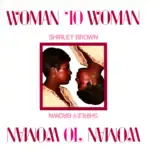
Woman To Woman – Shirley Brown

In The Rain – The Dramatics
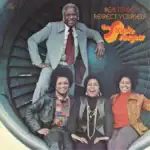
“I’ll Take You There” by The Staple Singers

Theme From Shaft
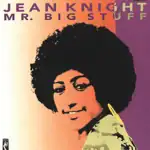
Mr. Big Stuff
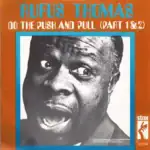
“(Do The) Push and Pull (Part 1)” by Rufus Thomas
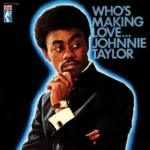
“Jody’s Got Your Girl and Gone” by Johnnie Taylor
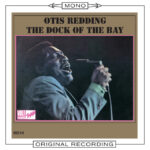
“(Sittin’ On) The Dock Of The Bay” by Otis Redding

“Knock On Wood” by Eddie Floyd
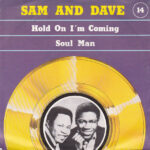
“Hold On, I’m Comin'” / “Soul Man” by Sam & Dave


